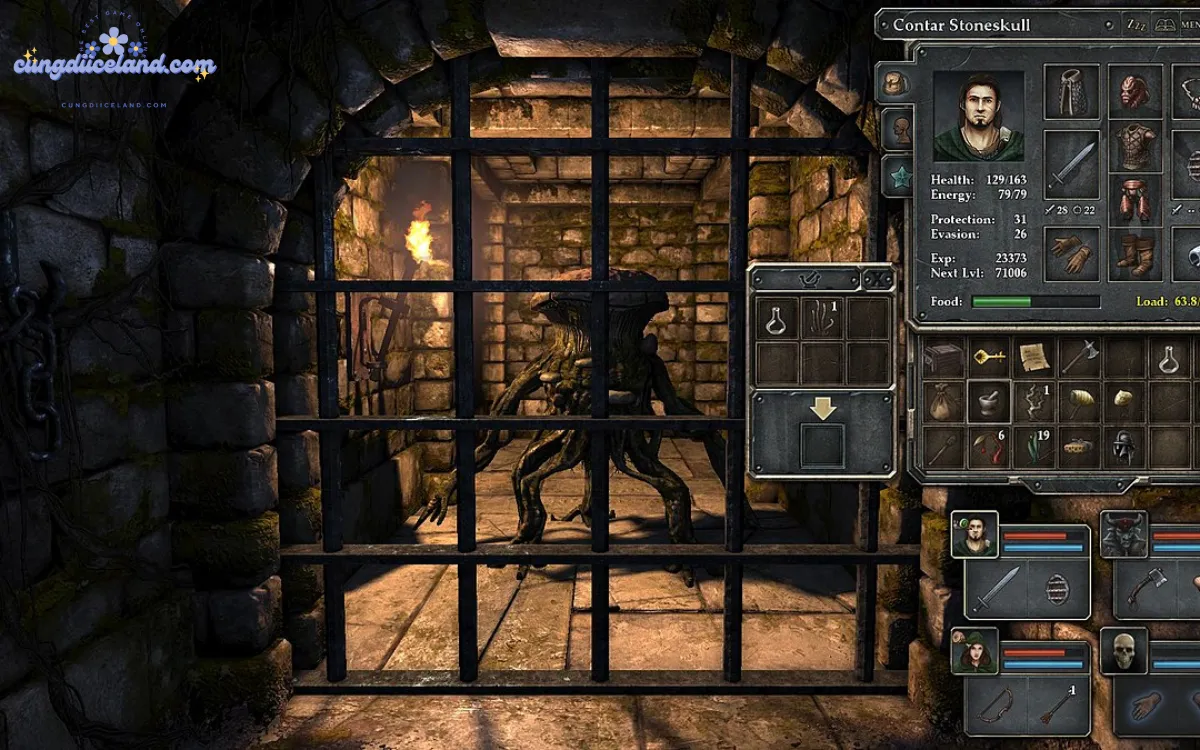Dice Math
Published on November 20, 2024
Role-playing games, commonly known as RPGs, are a cornerstone of the gaming industry. They have captivated players for decades, offering immersive worlds, intricate storytelling, and opportunities for character development. But what exactly does the term “RPG” mean, and why has it become such a significant part of gaming culture? In this article, cungdiiceland.com explore the meaning of RPG, its origins, and its evolution over time. Whether you’re a seasoned gamer or a curious newcomer, this guide will help you understand the essence of RPGs and their impact on the gaming world.
RPG stands for Role-Playing Game. At its core, an RPG is a game in which players assume the roles of characters in a fictional setting. These characters often have unique abilities, skills, and backstories that influence how they interact with the game world. Players typically guide their characters through quests, battles, and decision-making processes, shaping the story and outcomes based on their choices.
RPGs can be found in various formats, including:
The concept of role-playing dates back to ancient storytelling traditions, but modern RPGs as we know them began in the 1970s. Tabletop RPGs like Dungeons & Dragons laid the foundation for the genre, combining storytelling with strategic gameplay. These games allowed players to create their own characters, explore vast worlds, and engage in collaborative storytelling.
As technology advanced, RPGs transitioned into the digital realm. Early video game RPGs, such as Ultima and Dragon Quest, adapted the mechanics of tabletop games into interactive digital experiences. Over time, RPGs evolved to include stunning graphics, voice acting, and complex narratives, making them one of the most popular genres in gaming.

The Origins of RPGs
RPGs are defined by several core elements that set them apart from other game genres. These features include:
Exploration
RPGs come in many forms, each offering a unique experience. Here are some of the most popular types:
The popularity of RPGs can be attributed to their ability to provide immersive and personalized experiences. Here’s why players love them:
As technology continues to advance, the future of RPGs looks brighter than ever. Innovations such as virtual reality (VR), artificial intelligence (AI), and procedural generation are pushing the boundaries of what RPGs can achieve. Imagine stepping into a fully immersive VR RPG where you can physically interact with the game world or playing an AI-driven RPG that adapts its story based on your actions in real-time.
Additionally, the rise of indie developers has led to a surge in creative and experimental RPGs, ensuring that the genre remains diverse and innovative.
RPGs focus on character development, storytelling, and player choice, whereas other genres may prioritize action, puzzles, or competitive gameplay.
Not necessarily. While some RPGs are part of a series with interconnected stories, many can be enjoyed as standalone experiences.
Yes! Many RPGs offer tutorials and difficulty settings to accommodate new players. Games like Pokémon and Stardew Valley are great entry points.
This is subjective, but titles like The Elder Scrolls V: Skyrim, Final Fantasy VII, and World of Warcraft are often considered among the best.
Absolutely! Many RPGs, especially MMORPGs, are designed for multiplayer experiences. Games like Diablo and Divinity: Original Sin 2 also offer co-op modes.
The meaning of RPG goes far beyond its acronym. It represents a genre that has revolutionized gaming by offering immersive worlds, compelling stories, and endless possibilities. Whether you’re exploring ancient dungeons, battling mythical creatures, or forging alliances with other players, RPGs provide an unparalleled gaming experience.
If you’re new to RPGs, now is the perfect time to dive in and discover the magic of role-playing games. With countless titles to choose from, there’s an RPG out there for everyone. So, grab your sword, prepare your spells, and embark on an unforgettable adventure!